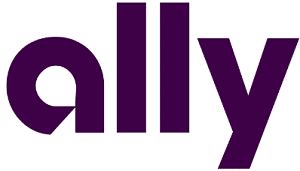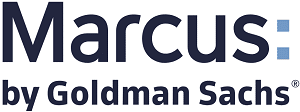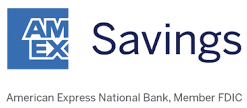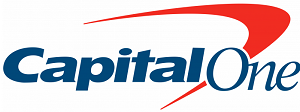Editorial Note: We earn a commission from partner links on Doughroller. Commissions do not affect our authors’ or editors’ opinions or evaluations. Learn more here.
With more online banks available now than ever before, finding the best online bank has never been easier. In this article, we’ll explain how online banks work, whether or not they are safe, and compare how they differ from traditional banks. We’ll also explore some of the advantages and disadvantages of using online banks as well as provide information about some of their current offers and rates.
Best Online Banks
We like online banks because they offer competitive interest rates, low fees, and other options, all while making banking more convenient than it’s ever been. There are several different banks to choose from. I have accounts at Ally and Capital One 360 and also have an account at American Express National Bank – Member FDIC.
Based on my personal experience along with substantial research, here are some of the top online banks we feel stand out above the rest.
| Bank Name | Best Product |
| Ally | Money Market |
| CIT Bank | CIT Platinum Savings |
| SoFi Bank | SoFi Bank Savings and Checking |
| Discover® Bank | Discover Bank Personal Loans |
| LendingClub Bank | Rewards Checking |
| Marcus | Marcus Invest |
| FNBO Direct | High Yield Online Savings Account |
| American Express National Bank – Member FDIC | High Yield Savings Account |
| Cap One 360 | Cap One 360 Checking |
| HSBC | HSBC Premier Relationship Savings |
1. Ally

Ally Bank is our pick for the best online bank because every product it offers is one of the best a consumer can find. I use Ally for its investing product (Ally Invest) and the High Yield Savings Account (current APY of 4.20%). I’ve also opened many CDs in the past, including the Ally No-Penalty CD.
The best product of the bunch is the Ally Bank Money Market Account. Account holders can access their funds from any Allpoint ATM for free, deposit checks remotely, and earn a 4.20% APY. There are no monthly maintenance fees, no minimum balance requirements, and Ally Bank always has live 24/7 customer support. If you’re freaking out at 3 am, give ’em a call.
- Best Product – Ally Bank Money Market Account
- Financial Products – Savings, checking, CDs, MMA, self-directed investing, robo-advisor, credit cards, personal loans, home loans, auto loans
- Monthly Fees – None
2. CIT Bank
As interest rates continue to rise, CIT Bank finds itself high on our list of the best online banks because of high interest rates, primarily found in its Platinum Savings product. It currently offers one of the highest APYs available with a rate of 5.05% APY and charges no monthly maintenance fee. You must have a balance of at least $5,000 to earn this top-tier rate.
If $5,000 is a bit too much to ask, CIT Bank also has its Savings Connect account, which offers an APY of 4.65%. This account requires only a $100 opening deposit, no ongoing balance minimum, and also has no monthly maintenance fees.
- Best Product – CIT Platinum Savings
- Financial Products – Savings, checking, CDs, MMA, home loans
- Monthly Fees – None
3. SoFi Bank

SoFi Bank is our most versatile bank with more than 20 unique products available to all consumers. From banking to credit cards to student loans, SoFi Bank does it all and they do it all very well, offering some of the very best products with the best rates and no monthly fees.
Our favorite product is the SoFi Savings and Checking Account because it kicks butt in three areas. First, you will earn a $300 bonus for signing up and making a deposit of at least $5,000 in the first 25 days. Second, account holders will earn an everyday APY of 4.60%. Finally, when using your debit card, a reward rate of up to 15% is earned on select retailers.
- Best Product – SoFi Checking and Savings
- Financial Products – Savings, checking, credit cards, personal loans, student loans, home loans, all insurance products, robo advisor,
- Monthly Fees – None
4. Discover® Bank
Discover Bank is more than just credit cards. Through Discover Bank, customers can find great rates on nearly any type of account they want – including savings, money market, CDs, and IRAs. The current APY on Discover’s online savings account is very competitive at 4.25% APY.
Discover Bank also offers a wide variety of loan products, including student loans, credit cards, and personal loans. I admit that on more than one occasion, I’ve taken out a Discover Personal loan to cover necessary home repair costs and the process was easy and quick (and the interest rate was fantastic).
- Best Product – Discover Personal Loans
- Financial Products – Savings, checking, MMA, CDs, credit cards, personal loans, home loans, student loans
- Monthly Fees – None
5. LendingClub Bank

LendingClub Bank is one of the newer online banks to make our list of the best online banks. They have a savings account that currently yields a 5.00% APY and was once best known for the P2P lending platform (which has changed into an LCX lending platform).
Rewards Checking offers low minimum deposits and no minimum balance requirements. Plus, it offers unlimited cashback of 1% on signature-based purchases with your LendingClub Bank debit card. You’ll also find unlimited rebates for ATM fees charged by other banks and no monthly fee.
- Best Product – LendingClub Bank Rewards Checking
- Financial Products – Savings, checking, CDs, personal loans, business loans, auto refinance loans, LCX
- Monthly Fees – None
6. Marcus

Marcus is a spinoff from Goldman Sachs and it offers a full suite of financial products. If you’re looking to tuck money away for a rainy day, the Marcus Online Savings Account is a great option which currently yields a 4.40% APY.
One of the products that sets Marcus apart from the competition is Marcus Invest. You can choose between three portfolio “themes” that will focus your investment strategy on what you value most. You can open an individual, joint, or retirement account and the annual fee for all accounts is 0.25%.
- Best Product – Marcus Invest
- Financial Products – Savings, CDs, credit cards, personal loans, robo-advisor
- Monthly Fees – 0.25% management fee for Marcus Invest
7. First National Bank of Omaha

FNBO Direct (First National Bank of Omaha) currently offers a highly competitive 4.75% APY for its online savings account, with a minimum deposit of just $1. There are no monthly fees, maintenance fees, or minimum balance needed to earn this high interest rate.
The product line of FNBO Direct only extends to one additional product – a personal checking account that has a 0.15% APY. If you check with the main FNBO brand, however, you’ll find a full suite of loans, credit cards, and other individual financial products.
- Best Product – High-Yield Online Savings Account
- Financial Products – Savings, checking, credit cards
- Monthly Fees – None
8. American Express National Bank – Member FDIC

American Express National Bank was one of the earlier name-brand credit card providers to open up shop as a bank. In addition to their colorful line of credit cards, you’ll find a top-of-the-line savings account, checking account, and CDs that offer competitive interest rates.
I’ve been banking with American Express National Bank for the last few years and can vouch for their quality. Currently, American Express National Bank offers two primary products; CDs and High Yield Savings.
Today you can earn up to 4.00% Annual Percentage Yield on a CD for 1 year and 4.30% APY with the High Yield Savings Account. Both online savings and CD accounts require no minimum deposit to open.
- Best Product – High Yield Savings Account
- Financial Products – Savings, Checking, CDs, Credit Cards
- Monthly Fees – None
9. Cap One 360

Cap One 360 is the customer deposits portion of the Capital One brand. The rates offered are some of the best available right now the Cap One 360 Performance Savings account has a 4.25% APY.
Cap One 360 Checking includes the best features Capital One incorporates into its product line, including fee-free banking, overdraft protection, getting paid up to 2 days early, and being able to use 70,000 ATMs free of charge. Cap One also works with Zelle, so you can transfer money externally without a fee.
- Best Product – Capital One 360 Checking
- Financial Products – Savings, checking, CDs, teen checking, credit cards, personal loans, auto loans, business loans
- Monthly Fees – None
10. HSBC

HSBC is one of the online bank OG’s. They’ve been around since the end of the Civil War (not kidding) and they have a variety of savings, checking, and CDs available all with no fees and solid interest rates. No minimum deposit amounts or balance requirements among them.
However, the account of most interest happens to be the HSBC Premier Relationship Savings. With this account, owners will earn an APY of 4.50% and have access to other high-end HSBC products. You will have access to instant bank transfers and global investment opportunities.
To avoid the $50 monthly maintenance fee, you must maintain a combined balance of at least $75,000 in all your HSBC accounts, make a monthly $5,000 direct deposit, or have a mortgage of at least $500,000 with the bank. A high bar.
- Best Product – HSBC Premier Relationship Savings
- Financial Products – Savings, checking, CDs, credit cards, home loans, personal loans
- Monthly Fees – $50 if conditions are not met to satisfy your Premier Elite Status
What is an Online Bank?
It may seem odd to speak of online banks as different than traditional banks. Don’t all banks offer online banking?
An online bank is a financial institution that does not have physical bank branches. All banking is done online. The advantage is that without the cost of physical locations, online banks offer higher interest rates on savings products and lower fees. And consumers have taken notice.
Although many consumers still love the idea of doing business with a traditional bank, the fact is that consumers are flocking in huge numbers to online banking options.
So what makes online banking so attractive to banking consumers? Online banking is extremely convenient, for one. Customers of online banks can access their information from anywhere with an internet connection. That makes doing all, or even some, of your banking online very convenient. Even traditional banks now include an online banking component for most of their customers.
Unlike their traditional counterparts, online banks do not have physical brick-and-mortar locations. This presents both advantages and disadvantages for online banking customers. Because banks don’t have the high overhead costs of maintaining or staffing physical locations, they can pass those savings along to their customers in the form of higher-yielding products.
Additionally, online banks typically can charge lower fees for the same reasons. However, customers who bank mostly in cash may find not having a branch location to be more trouble than it is worth. Customers who crave a personal face-to-face experience will also be disappointed.
Just as most traditional banks have the backing of the FDIC, online banks fall under their protection as well. Furthermore, many online banks offer the same banking products that you can find at traditional banks. Most online banks include checking, savings, CDs, and money market accounts. However, online debt-focused products – such as mortgages and personal loans – are rare. Although some online banks do offer IRA accounts, many do not offer any type of investing products or services.
How Online Banks Work
Due to the nature of how they work, online banks are geared toward satisfying the needs of more mobile and tech-savvy customers. Because online banks do not have physical branch locations, consumers need to make some adjustments in how they interact with their new bank.
Deposits
If you already have your paycheck directly deposited into your bank account, you’ll notice little difference in depositing your monthly income. With direct deposit, online banks work the same way as traditional financial firms. However, if you receive a paper check, you’ll need to find a different way to make your deposits.
An online bank typically enables deposits in the following ways:
Mobile Deposits: Most online banks today enable customers to deposit paper checks via smartphones. The feature is as simple as snapping a picture of the front and back of the check.
Electronic Transfers: You can connect an existing bank account with an online bank. This makes it easy to transfer funds to your primary bank account. That’s what we do. We transfer funds to our online banks to take advantage of the higher yields. When we need to use the money, we then transfer it back to your brick-and-mortar institution.
U.S. Mail: In addition to direct deposits, customers can also mail in their paper checks. Doing so means that your check will not clear and be credited to your account for at least a few days.
Withdrawals
Online banking customers can get access to their money in a many different ways.
Debit Card: The easiest way to make a purchase is to use the debit card provided by your new bank. Typically, these cards will have a daily purchase limit that protects your account from unauthorized purchases.
Paper Checks: Online banks may also provide customers with access to paper checks and online bill payment systems. Customers may also transfer funds to a traditional bank, which can then be accessed at that bank’s physical location within a few days. This can typically be done without incurring any fees.
ATMs: Most online banks have agreements with ATM services that allow their customers access to cash from these machines without paying a fee. Again, ATMs may be subject to a daily withdrawal limit.
Electronic Transfers: As mentioned above, this is how we access our funds in most cases. We simply transfer the money to our primary checking account.
Our Methodology for Choosing the Best Online Banks
When reviewing more than 50 prominent online banks, we focused on the following things to call out the best online banks:
- Product Line – The more quality products the bank offers, the better. The best online banks here all come with a full suite of individual accounts to help you manage your finances.
- Interest Rates – With interest rates on the rise, these brands must find themselves in the top 10% of all banks nationwide.
- Monthly Fees – You’ll find the banks on our list do not charge users a monthly fee to use their deposit products. Monthly and annual fees should be reserved only for high-end deposit or credit card products with explosive benefits and rewards.
- Product Quality – Lastly, we looked not only at the cost and benefit structure of the products but also whether or not they included extra benefits and offered friendly apps for customer interaction. These ten delivered above all others.
Is Online Banking Safe?
If you are new to online banking, you might be wondering if online banking is as safe as banking through a traditional bank. Although the act of physically handing your money to a teller may seem safer, the fact is that many traditional and online banks operate similarly.
Most online banks use the same type of security systems used in traditional banking. Furthermore, both traditional and online banks store your information on servers and databases that could potentially be vulnerable to cybercriminals. So, the perception of safety is not always the reality.
Before doing business with an online bank, make sure that they are a legitimate institution. Of course, we recommend using online banks that are insured by the FDIC. That way, your money is getting the same type of protection that it would get if you deposited it with a traditional bank (up to $250,000 in coverage).
Whether you choose to bank online or with a traditional bank, the safety of your account is really up to you. Monitor your accounts and look for any irregularities regularly. With online banking, in particular, make sure that you have secure private internet connections, rather than public wireless connections where your information may be visible to other users. Most of all, be vigilant about your online banking relationship. If you see something that doesn’t look right, take action immediately.
Advantages of Online Banks
Due to the nature of online banking, there are some distinct advantages that online banks can offer over traditional banks. Here are a few:
High Rates
Because online banks typically don’t have the same overhead costs as traditional banks, they can pass the savings on to their customers in the form of higher rates. Many banks can offer savings account and CD rates that are 0.5% higher (or more) than their traditional counterparts. Depending on the size of your balance, that can mean a lot of interest being put back into your pocket.
Low Fees
Again, because they have much smaller overhead expenses to deal with, online banks are typically able to offer lower fees than traditional banks. At most online banks, many of their account types offer zero fees.
Ease of Use
Since their entire business structure is based online, it makes sense that online banks would provide their customers with easy-to-use platforms. Additionally, most online banks now have mobile apps to help meet their customer’s banking needs even while they are on the go.
Disadvantages of Online Banks
Of course, making the switch to online banking presents some challenges as well. Here are a few disadvantages of online banks:
No Branch Locations
Although online banks can keep their overhead low due to the lack of physical branch locations, it does present some issues. For online banking customers, this means that face-to-face meetings with tellers and bankers are nonexistent. Customers desiring personal interaction will not find it in an online bank.
Difficulties with Cash
Another result of not having physical branches is that online banking makes it difficult to deposit and withdraw cash. Cash deposits are not allowed, and withdrawing cash must be done at an ATM. While online banks have agreements with ATM companies that eliminate processing fees, cash withdrawals are subject to daily limits.
Limited Product Offerings
Most online banks can offer the basic accounts that customers seek – checking, savings, and money market accounts. However, few online banks provide other products – especially debt products – that can be obtained from a traditional bank. Customers typically are unable to obtain home loans, personal loans, or brokerage accounts from an online bank.
No Safety Deposit Boxes
If you are somebody who uses a safety deposit box, you’re obviously out of luck finding those with an online bank. Since there are no physical locations, online banks are not able to provide this service.
How to Open an Online Bank Account
Opening an account at an online bank is pretty straightforward. Just visit the website of the online bank of your choice. Click on Open Account (or something similar). Choose the type of account you wish to open and fill out the required personal information. You can then fund the account through an online funds transfer, mailing a check, submitting an eCheck, or completing a wire transfer.
Related: How to Avoid Wire Transfer Fees
If you do not wish to open your account through the online process (and why wouldn’t you since you’re switching to online banking?), many online banks allow you to open your new account by telephone. Some also allow you to complete and mail paper forms to open your account.
The Bottom Line
Online banks can provide customers with high-yielding accounts and CDs that traditional banks may not be able to offer. Since there are both advantages and disadvantages to banking online, be sure to weigh the pros and cons before you make a complete switch.
The beauty of online banking is that you don’t have to switch entirely. You may consider keeping some accounts with a traditional bank while moving some of your money to an online bank to take advantage of the great rates. As always, do your research and think carefully before making any major financial decision.




